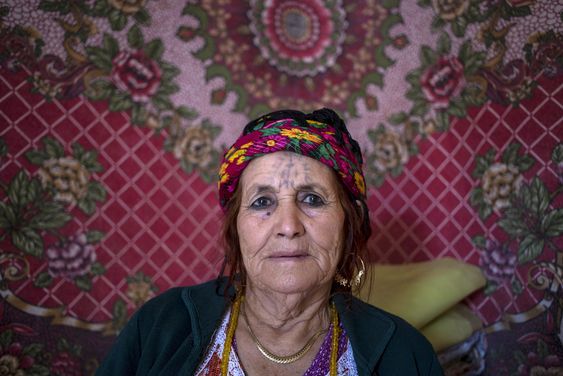Curses and prayers are two intertwined parts of Kurdish culture. One can see several aspects to think about in the Kurdish society based on these curses and prayers.
In some languages, curses are known as "bad prayers", a term that is derived from the word "bad" in the Persian language which means "bad or evil" and "Do'a" (prayer) is an Arabic word; it means to pray to God. That is, a bad prayer means to pray to God something bad happens to someone or some people.
As it is known, in Kurdish literature, especially in Kurdish folklore, curses, and prayers, like idioms and proverbs play a significant role in the social language.
Curses and prayers are two related concepts that sometimes become one because their practical use comes from the same source.
Prayers are said by mothers, fathers, and the elderlies. Prayers are positive words that when people face some difficulties, they raise their hands towards the heavens and say them in order to get rid of that problem.
The content of the curses and the prayers will change based on daily needs. When we listen to prayers and curses, we can find out a lot about the Kurdish society's values. These curses and prayers are literary works by themselves. They carry harmonious rhythms. People ask God to accept their curses.
In the oral culture, the curse is a negative and natural concept. Life situations and the needs of people in the past can be seen through these curses.
In Kurdish stories, songs, lyrics, and folklore words, curses can be found. As we mentioned, curses and prayers are not used by women only and they are often used by men while they raise their hands and say their curse or prayer.
Apparently, curses and prayers are used to harm someone. Some people curse themselves or pray for themselves on special occasions to convey their dissatisfaction with themselves.
Why do women say curses and prayers?
When Kurdish women and girls encounter an unpleasant situation and they do not have any solution for it, they turn to God, raise their hands, and begin to pray; they also curse the bad people or their bad actions.
Curses are mostly a result of the cultural folklore. Even if they are said with bad words, they are still a cry raised due to injustice or cruelty. The things people cannot do themselves but they wish they would happen naturally under God's order or the Prophet, the Sheikhs, or holy people's prayers are said in these curses. In Kurdish society, curses have a special place in wars and conflicts; unless a curse is not said, the conflict will not end.
When people have a problem, they curse. This helps them relieve some stress.
Curses are women's special weapon; each curse is like a poisoned arrow.
The effects of curses on them
In fact, there is a psychological aspect to curses. When someone curses others, sometimes the curse affects the target person. The person who curses others does not seek physical fight because the curse calms them down. Some of these curses are supported by the society. Even when a mother curses their children, the children show some reactions which is a negative point since it has negative effects on those children's souls.
The curses that are said by the women from Kobane:
- Curses related to disasters and diseases:
I wish a great thunder would heat your eyes.
I will cut your tongue.
I wish cancer grows inside your throat.
I hope God will not help you grow.
- Curses related to fate:
I wish your fate was lost.
I hope you get hard (it means to die) in your house.
Hey! Boy I hope you do not live enough to get married.
I hope you do not have anything.
To be continued…









